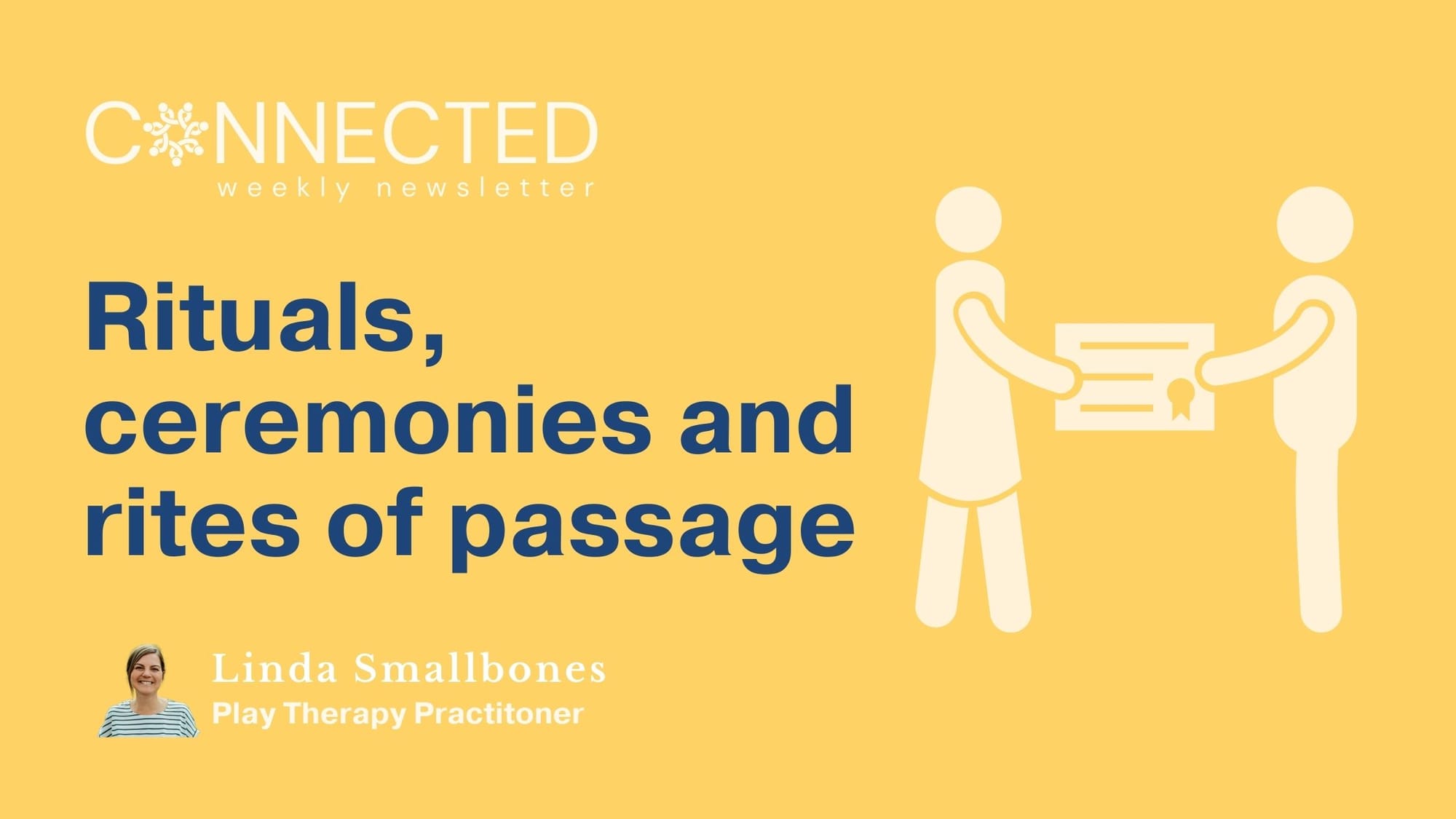Rituals, ceremonies and rites of passage
Explore the importance of rituals and ceremonies in family life, creating meaningful traditions that foster connection, belonging, and memories.

The need for ritual and ceremony is universal. We have daily rituals; that first glorious cup of coffee in the morning, or the blanket we always sleep with. One helps us start the day and the other helps us finish it.
Rituals mark time, bringing comfort or reassurance into each day. But they can also be very practical and necessary; like opening the curtains every morning or closing them at night. Rituals soothe and anchor us.
Ceremonies can be formal or informal, a wedding, a prize-giving, a birthday party. Rituals and ceremonies are a symbolic representation of dynamics that are happening in people’s lives.
[Image Placeholder: Rituals-ceremonies-rites-of-passage-2.jpg]
Our family had an informal but significant ceremony, really part of a rite of passage, recently. Our son turned 13! Adolescent boys in Western culture lack rites of passage and ritual that help them to mark their change in development, so, we decided to create one.
We gathered family and good friends who have known our son his whole life to speak words of affirmation to him. We asked people to prepare and write their words down to give to him to keep, so that significant blessing was not lost in the moment and if he felt overwhelmed, he would at least have a copy to read afterwards. It was so good. It was affirming and blessing who he is and who he is becoming in a time when it certainly isn’t easy being adolescent.
As parents, our message to him was that this group of people are part of his “village” and that if he couldn’t talk to us, he could talk to one of them. Most importantly, we all told him he is loved and cherished. It was quite beautiful.
[Image Placeholder: Rituals-ceremonies-rites-of-passage-3.jpg]
I encourage parents to find their own unique family rituals to do together. It can be fun; like having an "eat dinner with your fingers meal" once a month (we’ve been there, done that but it didn’t appeal to the more tactically sensitive in the family!). Rituals can be established around your unique family interests, needs and ages.
When each of our children turned 6 they went on a "6-year-old adventure" with their dad and grandad. We still talk about those adventures! Rituals make memories, even if things didn’t go according to plan! One child’s adventure ended in a stomach bug, but they still have very fond memories of the trip!
Be child-led as far as possible. Ask your child for their input and ideas. For example, before the 6-year-old adventure, we asked our children to think about where they wanted to go and what they wanted to do. It was an overnight trip, one child chose the mountains and the other the beach. They chose the evening meal and treats.
There is an intention in a planned ritual that communicates deep connection and belonging. The time and commitment involved on the part of the adult tells the child they are important. The ritual places the child inside a bigger story, with their trusted adult(s).
Let me know if you already have family rituals, or if you plan to start one!